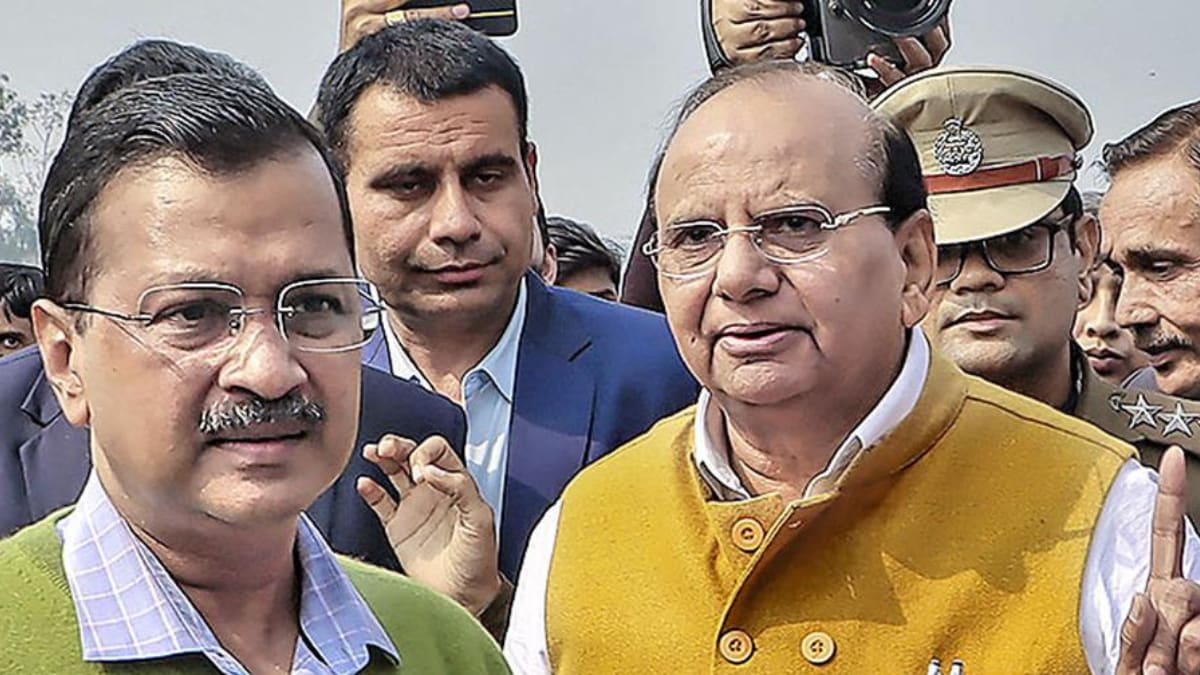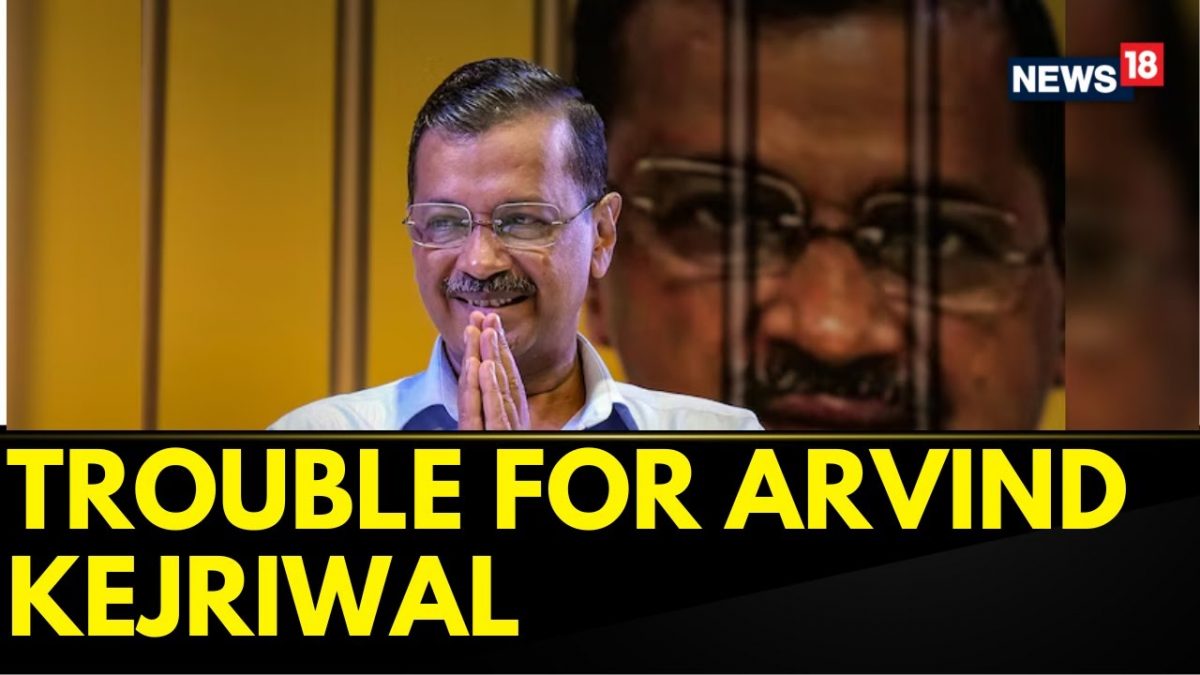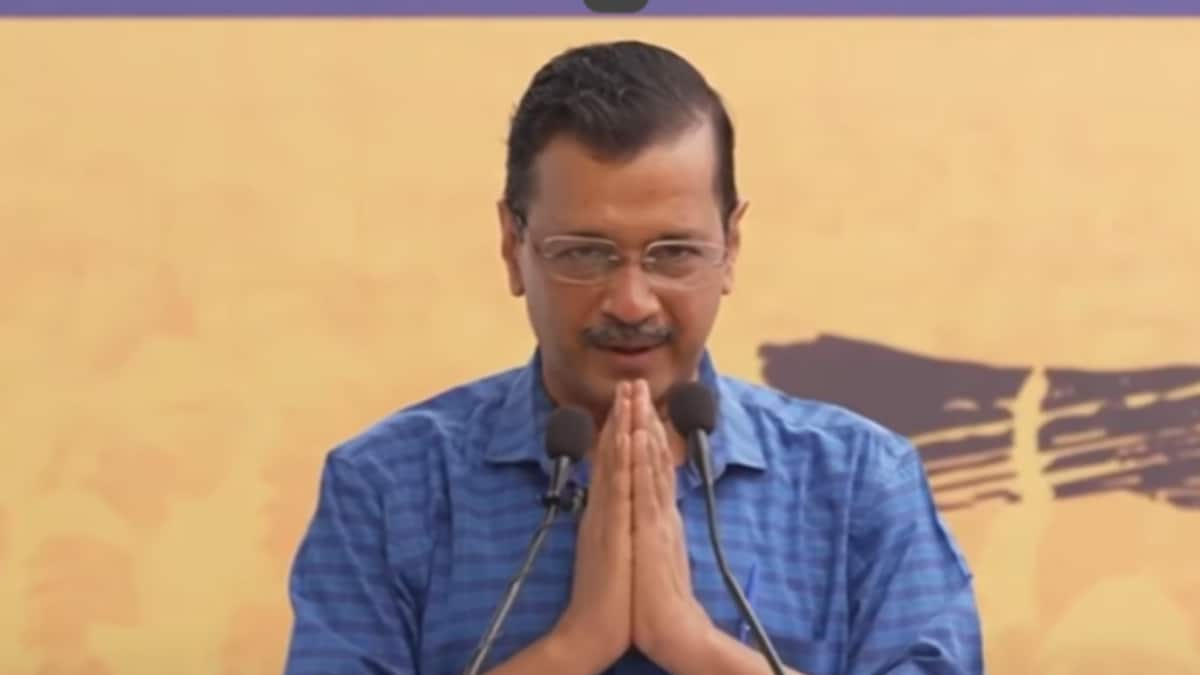Last Updated:November 11, 2024, 12:04 IST
Both sides appear locked in a high-stakes contest to outdo each other on welfare schemes, underscoring a trend in contemporary Indian politics where populist measures are being increasingly used as key electoral tools

Posters listing freebies near the Bandra-Worli sea link in Mumbai. (News18)
In Maharashtra, it is auction time, with political parties in the electoral fray looking to please their specific constituencies, which primarily include women voters.
As BJP promised Rs 2,100 per month to women as financial assistance, Congress announced Rs 3,000 as monthly payout. As the assembly elections in the state draw closer, a fierce battle of freebies is unfolding, with both BJP and Congress-led alliances aiming to sway key voter groups — especially women, farmers, and the youth.
The BJP, which is keen on reinforcing its grip on their crucial segments, has pledged to boost its women’s scheme to Rs 2,100 per month from the current Rs 1,500. Congress, however, seeks to one-up this promise with a Rs 3,000 monthly allowance for women, setting the stage for a freebie war over who can deliver more.
The competition now extends to Maharashtra’s farmer community that both parties are targeting through various loan waivers. This measure reflects a trend across all Indian states where farm distress has become a focal point of election season promises. Both the ruling BJP coalition and the opposition Congress alliance are offering a full waiver, attempting to alleviate a financial burden of loans that has led to widespread unrest and electoral setbacks in recent years.
For the state’s youth — seen as another pivotal and sometimes disillusioned voting bloc — the two parties have rolled out ambitious and aspirational incentives.
The BJP has promised an allowance of Rs 10,000 per month for 10 lakh students which is paired with a commitment to create 25 lakh job opportunities. Congress has stepped even further in offering freebies. While BJP’s promises to youth voters are primarily about generating more employment, Congress countered BJP by pledging Rs 4,000 monthly as allowance for unemployed youth. These electoral pledges underscore the high stakes and fierce competition for the young vote, which both parties hope to capture by appealing to them through sops.
This burgeoning freebie battle, however, not only reflects the intense political rivalry between BJP and Congress but also raises questions about the economic sustainability and feasibility of such promises. Both sides appear locked in a high-stakes contest to outdo each other on welfare schemes, underscoring a trend in contemporary Indian politics where populist measures are being increasingly used as key electoral tools. With promises stacking up, Maharashtra’s voters will have to decide which vision aligns best with their needs.
A look at the freebie frenzy
In the run-up to elections, both Mahayuti and Maha Vikas Aghadi (MVA) have unveiled a slew of populist schemes aimed at securing voter support, particularly among women voters, farmers, youths, and among the economically weaker sections.
The BJP, in its election manifesto, has committed to a significant boost in financial assistance under its ‘Ladki Bahin’ initiative, raising the monetary aid from Rs 1,500 to Rs 2,100, while also planning to recruit 25,000 women in the police force.
The party has promised a 30 per cent cut in power bills, hikes in old-age pension from Rs 1,500 to Rs 2,100, and an increase in the Kisan Samman Yojana’s annual payout from Rs 12,000 to Rs 15,000, while positioning itself as the ‘friend’ of farmers and senior citizens alike. In addition, BJP’s promise of a Rs 15,000 monthly honorarium and insurance for Anganwadi and ASHA workers signals its ways of giving recognition to the frontline workers’ contributions. Further, to appeal to the youth, BJP has pledged Rs 10,000 monthly stipends for 10 lakh students, alongside a promise to create 25 lakh jobs, demonstrating a focus on both education and employment.
Meanwhile, the MVA is tapping into a similar array of welfare-focused promises but with distinct emphasis. The MVA’s Mahalaxmi Scheme offers Rs 3,000 per month for women and free bus rides, which target female empowerment and mobility at a broader scale.
Their farm debt waiver of up to Rs 3 lakh could appeal strongly to Maharashtra’s farmer communities, where debt remains a pressing concern. For unemployed but educated youths, MVA has promised Rs 4,000 per month, doubling BJP’s youth-oriented approach and likely appealing to a vast pool of job-seeking voters.
Moreover, the provision of six LPG cylinders at Rs 500 each is a notable measure for the economically weaker sections, aiming to ease household expenses amid rising costs.
The Warnings
Even as political parties continue to announce freebies, the Reserve Bank of India (RBI) in its recent report published in June, cautioned the state governments against such freebies.
Quoting the CAG reports, the RBI said: “As per the latest available data from the Comptroller and Auditor General of India (CAG), the state governments’ expenditure on subsidies has grown at 12.9 percent and 11.2 per cent during 2020-21 and 2021-22, respectively, after contracting in 2019-20. Commensurately, the share of subsidies in total revenue expenditure by states has also risen from 7.8 per cent in 2019-20 to 8.2 per cent in 2021-22. At a disaggregated level, there are stark variations among states. For instance, Jharkhand, Kerala, Odisha, Telangana and Uttar Pradesh are the top five states with the largest rise in subsidies over the last three years. States like Gujarat, Punjab and Chhattisgarh spend more than 10 percent of their revenue expenditure on subsidies. Subsidies, however, are known to crowd out resources from other useful purposes."
The report added: “In the recent period, state governments have started delivering a portion of their subsidies in the form of freebies. While there is no precise definition of freebies, it is necessary to distinguish them from public/merit goods, expenditure on which brings economic benefits, such as the public distribution system, employment guarantee schemes, states’ support for education and health."
The RBI elaborated: “On the other hand, provision of free electricity, free water, free public transportation, waiver of pending utility bills and farm loan waivers are often regarded as freebies, which potentially undermine credit culture, distort prices through cross-subsidisation eroding incentives for private investment, and disincentive work at the current wage rate leading to a drop in labour force participation. Some freebies may benefit the poor if properly targeted with minimal leakages, but their advantages must be evaluated against the large fiscal costs and inefficiencies they cause by distorting prices and misallocating resources. Additionally, the provisions of free electricity and water are known to accelerate environmental degradation and depletion of water tables."
Location : First Published:November 11, 2024, 12:04 IST
News elections Freebie Frenzy In Maharashtra as Mahayuti, MVA Try To Woo Women, Farmers & Youth

 1 month ago
1 month ago
















